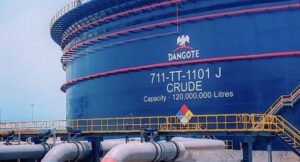Delayed petrol subsidy removal will erect significant implications for implementation of PIA — LCCI
By Oluwaseun agunsola, Omolola Dede Adeyanju
The Lagos Chamber of Commerce and Industry (LCCI) has taken note of the Federal Government’s decision to delay the petrol subsidy removal.
This was communicated by the National Economic Council (NEC), stating that the timing of the removal should not be now given the stretching economic uncertainties facing both the business and the household sectors.
The Chamber, related its opinion through a press statement signed by her Director General, Dr Chinyere Almona, FCA yesterday.
It stateD, “We believe the economic well-being of Nigerians, private and corporate, should be the focus of the government.
“These include debilitating inflation, currently at 22.04 per cent, worsening exchange rate, disturbing level of unemployment, high-interest rates, and uncompetitive high operating costs. These conditions are quite inimical to growth.
“The Chamber is concerned about the huge cost of petrol subsidy over the years and its implications on social and infrastructural developments.
“The government has spent more than N10 trillion of its scarce resources on petrol subsidy in less than two years. The budgeted cost of petrol subsidy is N3.36 trillion in the first half of 2023. With the decision to delay the subsidy removal, it becomes imperative to make provisions for an additional N3.5 trillion in the supplementary budget for the incoming administration. This is largely unsustainable.
“Therefore, there is a great and urgent need for the government to thoroughly evaluate its economic realities and adequately put plans and measures in place to mitigate the negative consequences of subsidy removal on Nigerians in the short term.
“We further note that the delay will have significant implications for the implementation of the Petroleum Industry Act (PIA), which may require amendments. The government needs to focus on the completion of the turnaround maintenance of our local refineries, as well as ensure that well-equipped modular refineries are empowered and supported.
“The Chamber recommends that government must actively engage all stakeholders on the implementation of the subsidy removal, detailing milestones that will be achieved (particularly in terms of social and infrastructural developments) with the proceeds from petrol subsidy removal and providing short-term measures to mitigate its adverse effects.”




